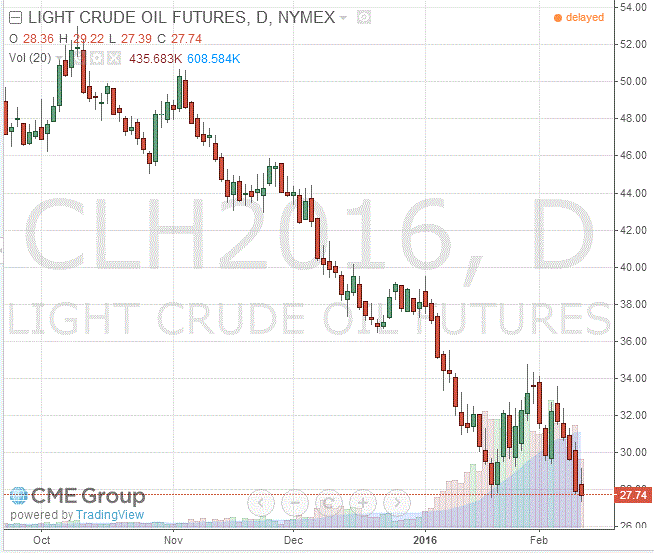- Analytics
- News and Tools
- Market News
- Oil prices trade mixed
Oil prices trade mixed
Oil prices traded mixed as market participants eyed OPEC's monthly report and the U.S. crude oil inventories data. According to the U.S. Energy Information Administration (EIA) on Wednesday, U.S. crude inventories declined by 0.75 million barrels to 502.0 million in the week to February 05.
Analysts had expected U.S. crude oil inventories to rise by 3.6 million barrels.
Gasoline inventories increased by 1.3 million barrels, according to the EIA.
Crude stocks at the Cushing, Oklahoma, increased by 523,000 barrels.
U.S. crude oil imports dropped by 1.13 million barrels per day.
Refineries in the U.S. were running at 86.1% of capacity, down from 86.6% the previous week.
The Organization of the Petroleum Exporting Countries (OPEC) released its monthly report on Wednesday. OPEC said that oil supply rose by 130,000 barrels per day (bpd) to 32.33 million bpd in January, compared to December.
The group said noted that oil demand is expected to slow in 2016. Global oil demand growth is expected to be 1.25 billion bpd in 2016, down from its previous forecasts of 1.26 billion bpd. Demand for OPEC oil is expected to be 31.61 million bpd in 2016, down its previous forecasts of 31.65 million bpd.
Non-OPEC output is expected to decline 700,000 bpd in 2016 due to low oil prices.
The U.S. oil output is expected to drop by 470,000 bpd in 2016.
Global oil supply surplus is expected to be 720,000 bpd if OPEC continues to produce at its January pace, up from the previous estimate of 530,000 bpd.
WTI crude oil for February delivery declined to $27.74 a barrel on the New York Mercantile Exchange.
Brent crude oil for February rose to $30.90 a barrel on ICE Futures Europe.
© 2000-2026. All rights reserved.
This site is managed by Teletrade D.J. LLC 2351 LLC 2022 (Euro House, Richmond Hill Road, Kingstown, VC0100, St. Vincent and the Grenadines).
The information on this website is for informational purposes only and does not constitute any investment advice.
The company does not serve or provide services to customers who are residents of the US, Canada, Iran, The Democratic People's Republic of Korea, Yemen and FATF blacklisted countries.
Making transactions on financial markets with marginal financial instruments opens up wide possibilities and allows investors who are willing to take risks to earn high profits, carrying a potentially high risk of losses at the same time. Therefore you should responsibly approach the issue of choosing the appropriate investment strategy, taking the available resources into account, before starting trading.
Use of the information: full or partial use of materials from this website must always be referenced to TeleTrade as the source of information. Use of the materials on the Internet must be accompanied by a hyperlink to teletrade.org. Automatic import of materials and information from this website is prohibited.
Please contact our PR department if you have any questions or need assistance at pr@teletrade.global.
















